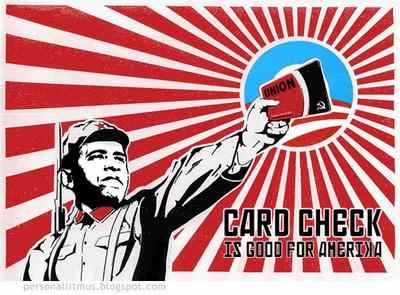MINNEAPOLIS–To some, the actions of the Connecticut legislature that enabled a child care provider’s union in Connecticut, might appear to add momentum to SEIU and AFCSME’s national campaign to conscript family child care business owners into becoming card-carrying dues-paying union members of these two unions.
Just weeks earlier, however, Governor Paul LePage (R-Maine) signed a bill repealing a 2008 law that sanctioned a union for family child care providers who receive state subsidies. Adding to the confusion, Governor Jerry Brown (D-Calif.) vetoed a bill establishing a union last fall.
The back and forth makes it difficult even for those with a vested interest to track who has the advantage in what’s become the front line in the fight over holding the line on or increasing the ranks of state public employee unions.
A little publicized federal court case being heard on Tuesday in US District Court in Minneapolis, however, takes the divisive issue away from state lawmakers and propels it to the national level, with the potential to end or embolden what some call compulsory unionization once and for all.
“We wish we didn’t have to be in this position to begin with but since we were put in this position, we do believe that this violates our first amendment rights and we intend to argue that in court,” said Jennifer Parrish, a Rochester provider who’s named in the complaint.
A dozen licensed family home child care providers have challenged the constitutionality of child care unionization. Specifically, the Minnesota small business owners, all women, contend the union election authorized via Governor Mark Dayton’s (D-Minn.) executive order violates their first amendment right of free political expression and association. The federal action raises constitutional challenges to the unions’ state-by-state strategy of bringing licensed family child care providers under the SEIU and AFCSME banners.
If the judge sides with the providers, it could spell the end for forced unionization of privately owned home-based child care providers. The National Right to Work Legal Defense Foundation, a non-profit legal aid association in Washington, DC, has offered free legal assistance to the Minnesota child care providers.
“It’s unconstitutional because the first amendment guarantees everyone the right to choose with whom they associate to petition government and that the government can’t choose who’s going to represent providers for lobbying the state,” said Bill Messenger, an attorney with the National Right to Work Legal Defense Foundation team on the case.
Over time, as many as sixteen states have imposed unionization on family licensed child care providers through executive order or legislation. Yet the number of states with active child care unions has declined, a fact that has gone mostly unnoticed in the past two years.
“Until litigation is successful and the court makes clear you can’t force independent business owners to be in a union, it’s always in play,” Messenger said. “In a lot of states, it wasn’t allowed but next thing you know, they’re unionized.”
Currently, seven states have active child care unions (Connecticut, Illinois, Maryland, New Mexico, New York, Oregon and Washington). Eight states have repealed unionization or no longer enforce a prior executive order (Iowa, Kansas, Maine, Michigan, New Jersey, Ohio, Pennsylvania and Wisconsin). Minnesota is currently enjoined from establishing a child care union via executive order due to a court ruling that may yet be appealed by the state.
“We’re going to be fighting this battle again and again until it’s ruled unconstitutional, which is what we’re looking towards having done,” Parrish said.
Barring a federal court ruling one way or another, tens of thousands of private child care providers who operate out of their homes may remain under a perpetual threat to their way of doing business.
| STATES WITH ACTIVE CHILD CARE UNIONS | MEANS OF IMPOSING UNION | STATES WITH INACTIVE CHILD CARE UNIONS | MEANS OF
DEACTIVATING UNION |
|
| Connecticut | Ex. Order & Statute | Iowa | Defunct Ex. Order | |
| Illinois | Statute | Kansas | Defunct Ex. Order | |
| Maryland | Statute | Maine | Repealed Statute | |
| New Mexico | Statute | Michigan | Repealed Ex. Action | |
| New York | Statute | New Jersey | Defunct Ex. Order | |
| Oregon | Statute | Ohio | Defunct Ex. Order & Repealed Statute | |
| Washington | Statute | Pennsylvania | Defunct Ex. Order | |
| Wisconsin | Repealed Statute |
*Minnesota enjoined from holding unionization vote by court rule pending a possible appeal by the State
Source: National Right to Work Legal Defense Foundation
###

COMMENTS
Please let us know if you're having issues with commenting.